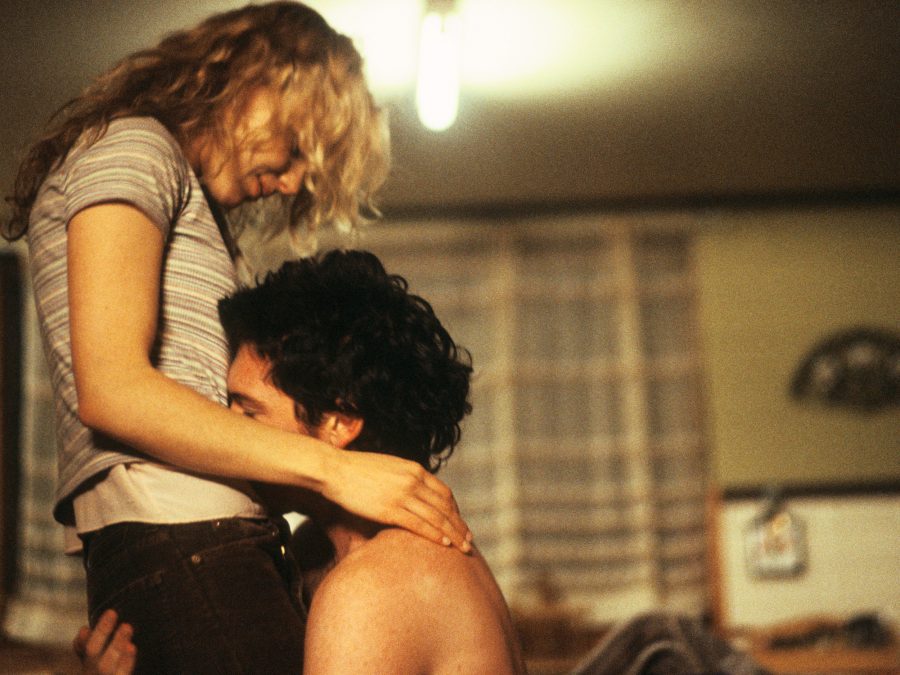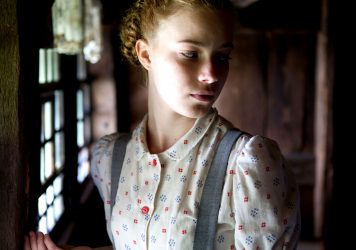
It’s strange to think after a year and a half of films appearing and disappearing due to multiple lockdowns that we can now head back into cinemas and enjoy its cathartic escapism and magic. For the Australian director Cate Shortland, this will come with the added relief of finally placing the spotlight on her as latest directorial effort, Marvel’s Black Widow, will finally be released a little over a year after its original due date.
The much-anticipated blockbuster is a huge deal for Shortland who is making history as Marvel’s first female solo director. And with that, coming from an independent film background, it means that this is something of a creative leap for her in terms of the scope and scale of production. This appears to be a common move for Marvel: to hire filmmakers with a background in indie or festival films and then catapult them to this alien world of fame, fortune and celebrity.
Black Widow appears to distance itself from the last few giant MCU films such as Avengers: Endgame and Spider-Man: Far From Home. It’s being perceived a spy thriller, but one that is kitted out in the typical ‘superhero genre-styled’ trappings. Yet for Shortland and Kevin Feige (president of Marvel Studios) this was an opportunity to really grasp the Natasha Romanoff character (as played by Scarlett Johansson) as an individual rather than merely a constituent of a team of heroes.
The director told Total Film magazine in September of 2020 that, if anything, she wanted to “expose the character and get under her skin.” Is this search for more nuance and depth one of the reasons that Marvel looks beyond the “safe-pair-of-hands” fray when it comes to employing creative leaders for their franchise spin-offs?
Pre-release whispers suggest that this isn’t just your regular hero saves the world narrative. After all, we’ve waited over a decade for this character to be explored on a more personal level. The movie is set follow Romanoff on the run as she heads back to her native Russia where she is confronted with an unfinished past she left behind before becoming an Avenger.
As a character, Romanoff was already a little different from her peers. She wasn’t gifted with extraordinary powers, but was instead driven by her strength and an ethical code of perpetual do-gooding. In an interview with The Independent, Shortland said: “Most of my characters have had a hard time, but I don’t want to tell stories which are just black and dark and upsetting.”
Johansson was an avowed fan of Shortland’s critically acclaimed 2012 drama Lore and her handling of its female lead. Lore tells a story of a young woman who leads her siblings through Germany as the Allied forces roll in. While it is a film that explores a vulnerable situation and complicated relationships, there is also something very beautiful and strangely empathetic in the way Shortland directs Lore’s rage and her realisation of emotions.

Shortland is known for her representations of strong women in real, often deadly and morally off-centre situations. Her female protagonists tend to struggle with life navigation which angers them when they try to defuse feelings of alienation, but with that she highlights how these characters survive and move on in a convincingly humane manner.
Take Shortland’s 2004 directorial debut, Somersault, as an example, a film which played in the Un Certain Regard section at that year’s Cannes Film Festival. This romantic drama revolves around 16-year-old Heidi (Abbie Cornish) who flees her Canberra home to explore a mountain town in New South Wales after trying to seduce her mother’s boyfriend. Confused and alone, she uses her sexuality in an attempt to secure herself a job and then she falls for Joe (Sam Worthington) who is himself is unclear his sexuality. It’s a sensual and authentic take on the feelings and desire of a young woman who is trying to define her own sense of belonging. The film rightly received praise for its touching and highly moving slow-motion imagery.
Marvel have perfected a formula when it comes to their hiring policies, and that’s not just when it comes to behind the camera talent: many of their lead stars have either been nominated or have won the industry’s biggest accolades. Indeed, the notion that Marvel could ever be an award season player has been clarified by Black Panther’s nomination for Best Picture in 2019, and a Best Picture win for Chloe Zhao, who will showcase her Marvel offering The Eternals later this year.
While Shortland’s small but perfectly formed film catalogue had already made the director one to watch, Black Widow will send her career on a new trajectory. From some angles, you could see Marvel as a malign force who are poaching the best and brightest young talent and bringing them into their filmmaking factory to make films in their inimitable house style.
Yet to do so would be to suggest that these filmmakers have no agency and aspirations of their own – that making these giant movies is something they would never otherwise want to do. Either way, when Black Widow finally makes it to cinemas on these shores, we’ll be looking hard for the personal “touch” she cultivated across three very fine films.
Little White Lies is committed to championing great movies and the talented people who make them. But to keep going, and growing, we need your support. Become a member today.
Published 28 Jun 2021

For a film that actively disengages from popular American culture, the Indian dance sequence is a perfect fit.

The bold concept behind Cate Shortland’s wrenching Nazi downfall drama is sold short by its overblown style.

A holiday fling turns into a waking nightmare in Cate Shortland’s tense romantic thriller.